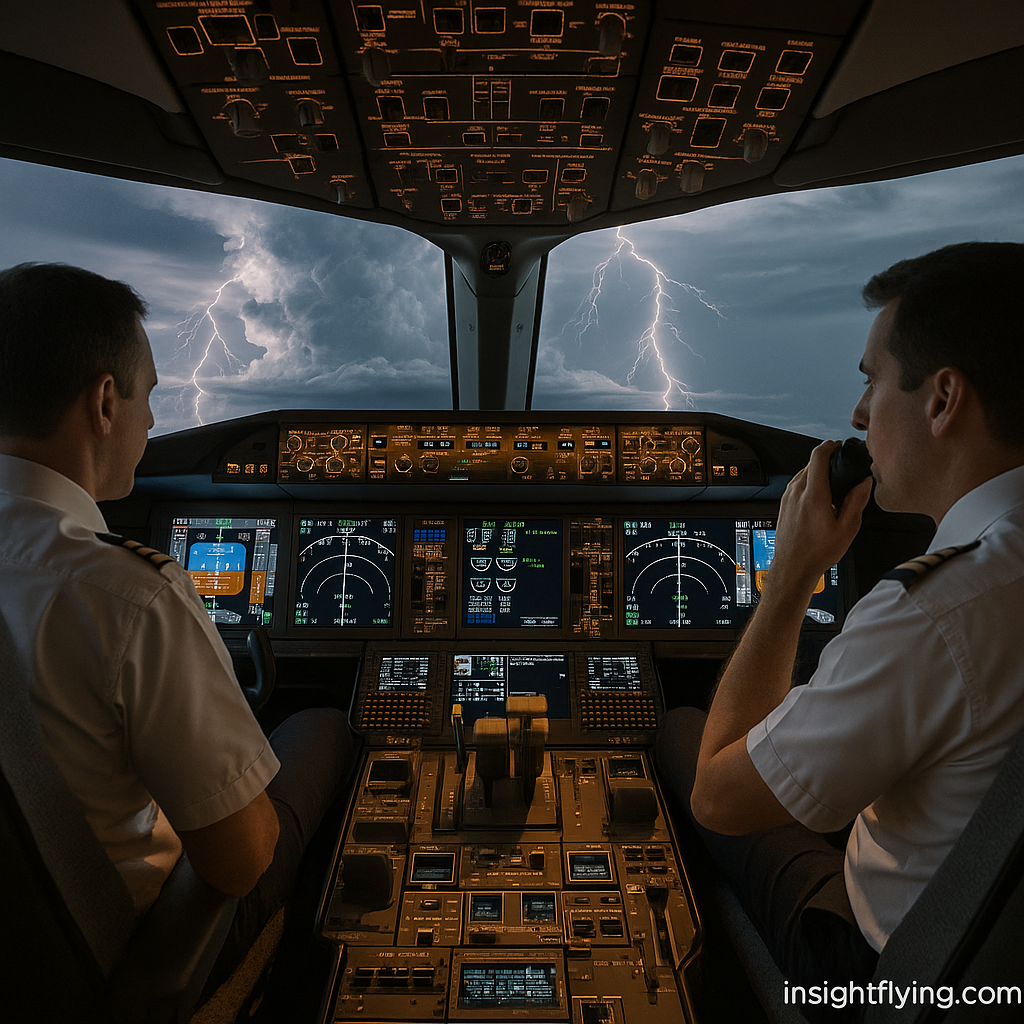Airmanship ฉบับโสภณ
Airmanship ถ้าเปิดพจนานุกรมก็จะได้ความหมายตรง ๆ ว่าเป็นทักษะ ความรู้ และประสบการณ์ที่ทำให้นักบินสามารถควบคุมเครื่องบินได้อย่างปลอดภัย ฟังดูเป็นวิชาการมาก แต่สำหรับผมแล้ว มันไม่ได้มีแค่คำจำกัดความแบบนั้น
Airmanship by Captain Sopon
If you open a dictionary, you’ll find that Airmanship is defined as the skills, knowledge, and experience that allow a pilot to operate an aircraft safely. That’s the textbook explanation. But for me, it’s more than just words on a page.
อ่านเรื่อง House of Airmanship แบบอธิบายเชิงวิชาการอย่างละเอียด
ผมขอแปลสั้น ๆ ว่า Airmanship ก็คือ “กึ๋น” ของนักบินนั่นเอง มันคือสิ่งที่บอกได้ว่าคนนั้นเป็นนักบินที่ดีจริงหรือไม่ มีช่องโหว่ที่จะนำไปสู่อุบัติเหตุหรือเปล่า เพราะแท้จริงแล้ว การบินไม่ใช่เรื่องซับซ้อนเกินเข้าใจ แต่ซับซ้อนมากพอที่จะสร้างความเสี่ยง หากขาด “กึ๋น” ในการตัดสินใจ
In simple terms, Airmanship is what I call “guts and sense.” It’s the instinct and judgment that separate a good pilot from one who might be a hazard. Flying is not impossibly complex, but it is complex enough that without good judgment, risks and mistakes can quickly pile up.
สิ่งที่อันตรายที่สุดคือการมี “ความมั่นใจแบบไร้สติ” หรือ Overconfidence นักบินที่รู้น้อยไม่ใช่ปัญหาใหญ่ แต่ถ้าไม่รู้แล้วยังไม่ยอมรับ กลับคิดว่าตัวเองทำได้แน่ แบบนี้อันตรายมาก เพราะอาจทำสิ่งที่ไม่ควรทำ โดยไม่รู้ด้วยซ้ำว่ามันเสี่ยงแค่ไหน
The most dangerous trait is overconfidence. A pilot who knows little isn’t necessarily unsafe—unless they refuse to admit their limits. That denial breeds risk. Believing you can do something without understanding the dangers behind it is a recipe for disaster.
Airmanship จึงเป็นเรื่องของการรู้จักตัดสินใจให้เหมาะกับศักยภาพของตนเองและทีม เพราะการบินไม่ใช่เรื่องของใครคนใดคนหนึ่ง แต่มันคือการทำงานเป็นทีม นักบินต้องเข้าใจทั้งศักยภาพของตัวเองและคู่บินในแต่ละวัน ว่าเราพร้อมแค่ไหนในสถานการณ์จริง
That’s why Airmanship is really about decision-making—knowing your own limits, and respecting the team’s capacity at that moment. Commercial flying is never a solo act; it’s teamwork. And readiness can change day by day, depending on human factors and life circumstances.
สิ่งสำคัญอีกอย่างคือการแยกปัญหาส่วนตัวออกจากการบิน ถ้าวันไหนใจไม่พร้อม กังวลเรื่องบ้าน เรื่องครอบครัว ก็ควรเลือกที่จะพักหรือลาป่วย ดีกว่าจะฝืนขึ้นบิน เพราะในอากาศ นักบินไม่มีสิทธิ์เอาใจลอยไปกับปัญหาส่วนตัว
Another vital point: leave personal problems on the ground. If your mind is burdened—whether from family issues or stress—you’re better off taking leave. In the cockpit, distractions can be deadly. A pilot’s full focus must be on the flight, nothing else.
การมี Airmanship ที่ดี หมายถึงการรู้จักควบคุมความตื่นตระหนก (panic control) ไม่ว่ามีเหตุการณ์ใดเกิดขึ้น เครื่องบินยังคงมุ่งหน้าไปข้างหน้าเสมอ นักบินก็ต้องคิดไปข้างหน้าด้วย ต้องถามตัวเองว่า “ต่อไปจะเกิดอะไรได้อีก และฉันควรเลือกทางไหน”
Good Airmanship also means panic control. No matter what happens, the aircraft keeps moving forward—so the pilot must think forward too. The right mindset is: “What could happen next? What are my options?” That calm anticipation often makes the difference between recovery and catastrophe.
การฝึกใน Simulator จึงไม่ได้แค่ซ้อมตามเช็กลิสต์ แต่เป็นการฝึกให้มี “กึ๋น” ในการรับมือสถานการณ์ที่ไม่คาดคิด เพื่อสร้างความมั่นใจในศักยภาพของตัวเองและทีม
That’s why simulator training is not just about checklists—it’s about cultivating instinct. It prepares pilots to handle the unexpected, building confidence not just in their own abilities but in the team as a whole.
สุดท้ายแล้ว สำหรับผม Airmanship คือ สัญชาตญาณในการเอาตัวรอด การมองให้รอบด้าน คิดล่วงหน้า และรู้จักยอมรับข้อจำกัดของตนเอง รวมถึงความพร้อมที่จะเผชิญปัญหาอย่างเต็มที่ร่วมกับทีมงานทุกคนบนเครื่องบิน
In the end, I believe Airmanship is survival instinct, situational awareness, forward thinking, and the humility to accept your limits. It’s the readiness to face challenges together, with the entire crew, for the safety of every soul on board.
“นักบินที่ตระหนักว่าไม่รู้ จะไม่กล้าเสี่ยง”
มี Airmanship ดีกว่าพวกที่ “ไม่รู้แต่คิดว่ารู้” และดันทุรังทำ
“A pilot who admits what they don’t know is far safer than one who doesn’t know, but believes they do—and dares to act on it.”


|
|
หนังสือการบิน ทางลัดสู่ความเข้าใจที่นำไปใช้งานจริง

|
|

|
|


|
|

|
|

|
|
A350 accident Airbus aircraft airline airmanship attitude aviation Aviation SMS become a captain become a pilot Boeing Crisis Crisis Management diversion emergency engine fatigue flight safety flood go-around Indigo interview judgement management motivation pilot pilot interview qualified pilot safety safety management Safety Management System safety report SMS student pilot technology turbulence weather การจัดการความปลอดภัย การจัดการภาวะวิกฤติ การบิน การสอบสัมภาษณ์ นักบิน ระบบบริหารความปลอดภัย สอบนักบิน
ขายดีที่สุด

|
|

A350 accident Airbus aircraft airline airmanship attitude aviation Aviation SMS become a captain become a pilot Boeing Crisis Crisis Management diversion emergency engine fatigue flight safety flood go-around Indigo interview judgement management motivation pilot pilot interview qualified pilot safety safety management Safety Management System safety report SMS student pilot technology turbulence weather การจัดการความปลอดภัย การจัดการภาวะวิกฤติ การบิน การสอบสัมภาษณ์ นักบิน ระบบบริหารความปลอดภัย สอบนักบิน


